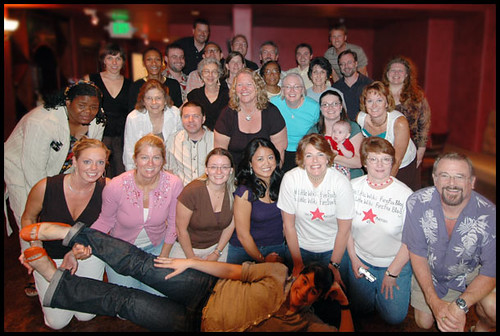
I’d like to continue an exciting conversation started in West Oakland with Michael James, co-founder of D.U.S.T.Y., Digital Underground Storytelling for You(th). He, Glynda Hull and others have been working with youth in W. Oakland for several years, namely through an after-school/summer program housed in a beautiful Victorian home in West Oakland.
One of the aims of the program, as I see it, is to provide youth with opportunities to engage in various digital literacy practices and multimedia production (i.e., digital DJ-ing, digital storytelling). Creative self-expression through digital tools is often compelling, both for youth and adults, and I’d argue these experiences carry over into our personal and academic lives.

I hope with this post to list some of the issues Michael and I talked about (including sustainability) that linger for these types of youth programs. Possibly the greatest impetus for this post is to begin looking for the overlaps between the work at DUSTY (and other programs—Dave Egger’s 826NYC for youth in Brooklyn) and the work many local writing project sites are beginning for youth (i.e., summer tech/literacy camps). My hope is that we can celebrate the excitement in this work and learn from any logistical and/or political/theoretical questions that arise.
A quick review of my notes from my conversation with Michael (mostly questions):

1. How can writing projects with youth tech camps and other youth tech/writing programs like DUSTY collaborate and/or learn from each other?
2. How can writing projects and DUSTY design programs with sustainability? What funding issues need to be addressed? What is the potential for teacher/preservice teacher professional development involving technology and literacy?
3. How can we help foster skills/practices that are “marketable” for youth? In other words, how can we acknowledge various economic/power structures youth face as they navigate through (and exit) different stages of their educational lives? How does/should our work interact with public school curriculums?
I’m butchering these questions, but I invite any suggestions for their revision and more importantly any dialogue about how we think through them. Here’s a modest (and redundant) start. Red Cedar Writing Project is sharing their plans online for a youth tech workshop for anyone interested to see. Thanks RCWP.

